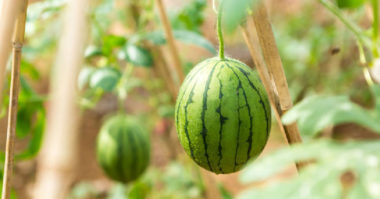Through the process of photosynthesis, plants cover solar energy, water and carbon dioxide into carbohydrates and oxygen. Life on earth depends on the presence of plants. However, plants often come into contact with alcohols.
Alcohols are organic chemicals with a hydroxyl (OH) group bonded to a carbon (C) atom, which is often bonded to other carbon or hydrogen atoms. Results vary when plants are allowed to metabolize alcohol.
Contents
Can alcohol kill plants?
Alcoholic beverages contain ethanol in various dilutions. Hard liquors, such as vodka and whiskey, can be diluted and applied to plants to limit plant growth. However, beer or wine should never be applied to plants. The sugar content of beer and wine promotes bacterial and fungal growth, which damages or kills the plant.
How to use alcohol against aphids?
70% rubbing alcohol is sold for antiseptic purposes. At this concentration, it can be safely sprayed on plants to kill aphids. If the plant is sprayed with rubbing alcohol, the effects are similar to those of ethanol. With a concentration of 5%, plant growth is stunted, while concentrations above 25% tend to damage or kill the plant.
A useful homemade insecticide is 70% rubbing alcohol (isopropyl alcohol). Mix 1 part rubbing alcohol with 7 parts water and spray it on plants affected by aphids, mealy bugs, thrips or whiteflies. The alcohol will melt the protective wax of some insects and dry out the soft bodies of others.
In addition, it tends to make the insects move out of their hiding places, making it easier to control them. Spray to saturation, covering all surfaces, including stems, both sides of leaves and especially the leaf axils.
You can also add a few spoonfuls of rubbing alcohol to insecticidal soaps and homemade insecticides to increase their effectiveness.
This treatment normally affects only the nymphs and adults. Eggs and pupae are not affected. So repeat the treatment every 2 weeks until you see no more predators.
Tip: Use cotton swabs
You will also see, on other sites, the recommendation that mealy bugs can also be controlled by touching each one with a cotton swab soaked in rubbing alcohol… but I won’t waste your time.
This will only remove the most visible insects, but will not stop the infestation, as there are always hidden mealybugs that will reclaim their place. Alcohol spray is more likely to reach all the insects and thus be effective.
Alcohol metabolism
The enzyme alcohol dehydrogenase is found in most living organisms, including humans, bacteria and plants. This enzyme catalyzes the reaction of an alcohol to an aldehyde or ketone by removing the hydrogen from the alcohol. There are a variety of alcohols. The most common are methanol, ethanol and isopropyl alcohol.
Each alcohol is converted into a different aldehyde or ketone by alcohol dehydrogenase. For example, in humans, ethanol is converted to acetylaldehyde, while methanol is converted to formaldehyde.
Ethanol or methanol for plants?
Ethanol
Ethanol, or grain alcohol, is produced by the fermentation of grains. Ethanol is the alcohol found in alcoholic beverages. Ethanol tends to stunt plant growth. When ethanol is applied to flowers, scientists note that when watered with a 5% ethanol solution, plant growth slows.
When a 10% alcohol solution is applied, the plant becomes stressed and with a 25% alcohol solution, the plant dies. This can be useful if the plant’s growth needs to be suppressed, as is the case with many flowers. Once the flower grows, it will wilt and lose its aesthetic value. By using ethanol, the flower can be kept smaller for a longer period of time.
Methanol
Methanol is the simplest alcohol. It is often used as a racing fuel and solvent. Studies have shown that methanol stimulates the growth of many crop plants. Methanol is used by the plant’s metabolism in the same way as carbon dioxide. A 30% methanol solution appears to be the most effective in increasing plant yield.








